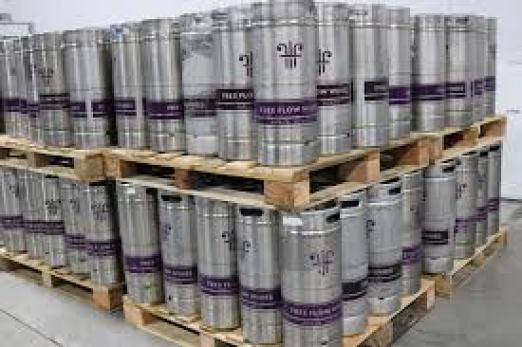Alternative wine packaging for the eco-conscious consumer
When it comes to wine, we are accustomed to seeing it in traditional glass bottles with corks or screw caps – the former being traditional, and the latter being a somewhat more modern twist.
However, in recent years, the wine industry has been exploring alternative packaging options that offer convenience, innovation, and most importantly for the ethical consumer – sustainability. From cans to boxes, pouches to kegs, there is a growing trend of wines being packaged in unconventional ways.
Cans
Canned wine has gained popularity in recent years due to its convenience and portability. Originally more commonly used for ‘cheap’ wine, the usage of cans in wine packaging has been on an upward trend in recent years and was dramatically accelerated by pandemic lockdowns resulting in a more popular ‘casual outdoor’ drinking culture in many countries.
Cans are lightweight, easy to carry, and do not require a corkscrew, making them the perfect container for picnics and outdoor events.

Canned wines also have a longer shelf life compared to opened bottles, as they prevent oxygen from seeping in and oxidizing the wine. This makes them an ideal option for a single drink in comparison to opening a bottle and leaving it half-full.
Additionally, for the conscious consumer, cans are highly recyclable – making them amongst the most eco-friendly options for wine packaging!
Boxes
Wine boxes have been used for many years, but they are now rapidly gaining traction in the wine industry. These boxes typically contain the equivalent of four bottles of wine and are made from a combination of paperboard and aluminum foil, providing an airtight seal that preserves the wine’s freshness for several weeks after opening.
While you’ll more typically find wine boxes in use for cheaper wines, they are increasing in popularity in the industry and you’ll now be able to find many more wines on offer in boxed format than were available in the 2010s.
On the sustainability side – wine boxes are lightweight, portable, and have a lower carbon footprint compared to glass bottles (specifically since they require less energy to produce and transport).
Pouches
Wine pouches are another innovative alternative to traditional wine packaging.
These pouches consist of a plastic bag with a spout and are often used in larger volumes for parties, events and gatherings (summer BBQ, anyone?). Similar to boxed wine, they are lightweight, easy to transport, and have a lower carbon footprint compared to glass bottles.
Wine pouches are also recyclable, and some brands even offer refillable options, reducing the amount of waste generated. Unfortunately, wine pouches are highly dependant on your region (eg, Europe vs United States) and while you may be able to find them easily, in other countries you may find yourself in an area of diminished popularity.
Steel Kegs
Wine kegs (similar to those traditionally used for beer or ale) are becoming more popular in commercial settings such as restaurants and bars.
Just like their beer cousins, wine kegs are typically made of stainless steel or other durable materials and can hold the equivalent of up to 30L of wine.
They are often used for wines that are meant to be served on tap, such as sparkling wines, rosés, or house wines. Unlike the other options on the list, wine kegs bring their own twist to sustainability – by eliminating the need for individual bottles, corks, and caps. This reduced packaging waste and transportation costs makes a significant impact to the sustainability of steel kegs.

PET Bottles
PET (polyethylene terephthalate) bottles are a lightweight and (importantly!) shatterproof alternative to glass bottles. While commonly used for non-alcoholic beverages, they are now being adopted for wine packaging as well. PET bottles are recyclable and require less energy to produce and transport compared to glass bottles, due to their significantly reduced weight.
Eco-friendly Traditional Materials
In addition to the packaging options mentioned above, there is also a growing trend towards using eco-friendly materials for wine packaging.
For example, some sustainability-focused wineries are using recycled glass for their bottles, or opting for biodegradable or compostable materials for their packaging. Leveraging these more eco-friendly recycled alternatives to traditional materials cuts a great balance between the tradition of your expectation from a wine bottle (after all, it looks identical), while still providing a sense of ethical business practices for the conscious consumer.
